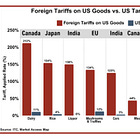Good News! SBC Investment Firm Takes a Stand Against the Abortion Pill
GuideStone demonstrates how SBC entities can course-correct and become a force for Christian values in the public square.
NOTE: At Martin Capital, we strongly believe in shareholder activism, particularly to advance Christian values. We applaud our friends at GuideStone for their strong stand and for the broader course they’ve set. — RDM
by David Mitzenmacher
March 23, 2025
There are many reasons for Southern Baptists to be concerned about the actions and direction of various denominational entities. From compromises on cultural issues to concerns about transparency to practices that undermine the basis of our cooperation, these frustrations are real and justified.
Yet, amidst these challenges, there are also many things that should be celebrated and built upon. One such example can be found in recent actions taken by GuideStone Resources.
It might come as a shock that this quiet entity, entrusted with providing retirement and insurance benefits for Southern Baptist churches, took a bold stand by engaging in shareholder activism—joining with other faith-based organizations to urge major pharmacies not to carry abortion pills.
GuideStone Resources, the Quiet Giant
Certain entities tend to dominate the conversation in Southern Baptist life. The Ethics and Religious Liberty Commission (ERLC) is a lightning rod for debate, frequently criticized for being out of sync with the churches that it is supposed to serve. The seminaries loom large over Southern Baptist life, and there has been rigorous debate regarding what should and should not be taught. Lifeway Christian Resources is a household name among Southern Baptists but often draws scrutiny over what can best be described as covert egalitarianism.
Similarly, the International Mission Board (IMB) and the North American Mission Board (NAMB) are no strangers to contention, with discussions about funding, strategy, and tactics often sparking heated exchanges at SBC annual meetings and on social media.
Yet, amidst these high-profile players that occupy much of the conversation in our annual meetings, GuideStone Resources often seems to remain in the shadows. This lack of visibility is not due to lack of impact but rather due to the nature of its work.
GuideStone Resources was established in 1918 to serve pastors, missionaries, church staff, and other Christian ministry workers by providing financial planning, investment management, insurance, and retirement services. The entity manages over $20 billion in assets and serves over 250,000 individuals and 60,000 organizations, making it one of the largest faith-based financial entities in the United States.
GuideStone’s work is inherently behind the scenes, lacking the drama that captures headlines or sparks debate at SBC annual meetings. As a result, GuideStone is rarely the subject of resolutions, blog posts, or social media storms, even though it touches the lives of many Southern Baptists.
Conservative Baptists rightly critique various SBC entities for theological drift and strategic missteps, but it is equally important to highlight those entities that act in a way that reflects Baptist convictions and the responsibility that all Christians have to make the will of Christ supreme in all of human society.
Stepping Up for the Unborn
GuideStone recently joined a group of faith-based investors, led by the Alliance Defending Freedom (ADF), to send shareholder letters to Costco, Albertsons, Kroger, McKesson, and Walmart, urging them not to carry abortion drugs in their pharmacies. The group collectively holds over $100 billion in assets, with a combined stake of $172 million in the five companies that received these letters.
The letters, which included GuideStone Managing Director Will Lofland as one of the most significant signatories, urged each of these companies “for its own sake and the sake of its shareholders and customers” to refrain from dispensing the abortion drug Mifepristone.
These actions represent shareholder activism, which refers to shareholders’ efforts to influence a company’s policies, practices, or strategic direction. Shareholder activism can take various forms, including sending formal letters to the company’s leadership, filing resolutions, issuing public statements, and engaging in proxy voting.
Officers and directors of publicly traded companies are required to take shareholder activism, such as the letter that GuideStone signed, seriously due to a combination of legal, fiduciary, and reputational factors. Legally, the board of directors has a fiduciary duty to act in the best interest of the company and its shareholders. This duty includes considering shareholder proposals and concerns, especially when they come from significant shareholders or coalitions, such as GuideStone and its partners who collectively manage substantial holdings in these companies. Shareholder letters such as these often prompt boards to adopt a certain course of action to avoid costly proxy battles or legal challenges.
Beyond legal obligations, officers and directors take shareholder activism seriously because of its potential to impact the company’s reputation, stock price, and long-term strategy. A letter from a coalition of faith-based investors with over $100 billion in assets under management carries weight, as sustained activism can lead to changes in board composition as activist shareholders rally support to elect new directors or force a strategic shift.
Thus, a letter like the one that GuideStone and its partners sent does not simply get shuffled off to the customer service department (as would likely be the case if you or I sent a letter as an individual customer). It is taken seriously at the highest levels of the organization—the c-suite and the boardroom.
Credit Where Credit is Due
GuideStone’s participation in this shareholder activism campaign is significant, and it merits hearty applause from Southern Baptists and all who value the lives of our unborn neighbors.
GuideStone’s actions reflect a clear commitment to biblical principles and Baptist ethics. The Baptist Faith and Message, the doctrinal statement of the Southern Baptist Convention, affirms that life begins at conception and that Christians are called to defend the vulnerable, including the preborn.
Resolutions adopted by SBC messengers have opposed organizations and institutions that profit from abortion and have called on Baptist leaders to work to abolish abortion. By leveraging its financial influence as a shareholder, GuideStone is putting these convictions into action in a manner appropriate for the entity’s ministry assignment (which, I should note, is different than the ministry assignment of the ERLC, which is called to communicate the moral and ethical positions of the SBC to public officials).
GuideStone’s efforts also demonstrate the power of “working with all men of good will in any good cause without compromising loyalty to Christ and His truth” (BFM 2000 XV). In an era when secular corporations often bow to cultural pressure that runs contrary to God’s law, GuideStone’s cooperation with other faith-based investors to seek the restraint of evil is highly commendable.
The Fruit of Repentance
It is important that we don’t attempt to hide the past, and so we should acknowledge that GuideStone has not always been without fault. A particularly bad chapter in GuideStone’s history involved outsourcing the firm’s proxy voting to a third party, who subsequently voted on pro-abortion shareholder resolutions in a manner that conflicted with the convictions of the Southern Baptist Convention.
Proxy voting involves shareholders casting votes on company matters during annual meetings. Because a financial services organization like GuideStone manages a large and diverse investment portfolio, it is not uncommon for proxy voting to be outsourced to a third party that specializes in casting votes on matters such as electing board members and approving mergers in a way that maximizes shareholder returns.
For a company like GuideStone, managing $20 billion in assets across various funds, retirement plans, and other investment vehicles, the sheer volume of proxy votes can be overwhelming. These votes often involve hundreds or thousands annually across numerous companies. Outsourcing this function to a third-party proxy advisory firm is one way to improve efficiency in handling this workload.
However, for a faith-based entity like GuideStone, outsourcing proxy voting carries a unique risk—that the third-party firm’s voting guidelines do not align with the organization’s Christian values. Many of the matters voted on in proxy votes are doctrinally neutral—evaluating whether to approve a merger or a stock buyback, for example.
But in the early part of this decade, a number of activist organizations filed shareholder resolutions that asked companies to formulate policies to ensure employee access to abortion. At this time, GuideStone’s decision to outsource proxy voting for efficiency led to a terrible outcome—57% of GuideStone’s proxy votes on pro-abortion proposals were in favor.
However, we should again give credit where credit is due. GuideStone didn’t try to gaslight Southern Baptists into believing that this wasn’t a problem. Instead, it showed organizational repentance by changing course and bringing proxy voting in-house to ensure that its votes consistently reflected Baptist convictions.
Now, Will Lofland is on record as intentionally bringing GuideStone’s shareholder clout to counter progressive corporate policies like funding Pride parades, covering employees’ travel costs for abortions, or debanking customers on political and religious grounds.
GuideStone’s actions provide a roadmap from which other entities ought to learn. Baptists recognize that all of us are sinners, and so, we aren’t always going to get things right. But Christians ought to be characterized as being quick to show godly repentance when shown where we have strayed.
GuideStone erred in outsourcing its proxy votes, and when that error came to light, the entity changed course and embraced a new path that seeks to undo any damage the firm’s missteps may have caused.
A Needed Partner, Missing in Action
In 2021, Southern Baptists adopted a resolution on abolishing abortion that committed to establishing equal justice and protection for the preborn according to the authority of God’s Word. Southern Baptists ought to expect our various entities to work towards that end in a manner appropriate to the charge given to each entity.
While GuideStone’s efforts to influence pharmacies not to carry abortion pills is commendable and appropriate for the entity’s ministry charge, it is worth considering how much more powerful the witness of Southern Baptists could be if GuideStone’s supply-side activism were complemented by robust advocacy by the ERLC on the demand side of abortion.
Imagine the impact if GuideStone’s shareholder activism was paired with a strong, unapologetic push from the ERLC to call for the criminalization of abortion pill use, recognizing that abortion is murder and giving the preborn equal protection under the law.
Instead, the ERLC has expressed opposition to laws that would legally deter women from purchasing and using the abortion pill by treating abortion for what it is—murder. The ERLC’s actions run contrary to the will of the messengers, which is to see the murder of preborn children punished equally under the law.
A two-pronged approach, with GuideStone pressuring pharmacies on the supply side and the ERLC advocating for the criminalization of abortion pill use on the demand side, could create a comprehensive strategy to end the horror of the abortion pill. On the supply side, GuideStone’s activism could reduce the availability of abortion pills, making it harder to access them through mainstream pharmacies. On the demand side, the ERLC’s advocacy could deter those seeking abortion pills by establishing legal consequences for their use equally under the law. Together, these efforts could help lead to the abolition of abortion, advancing the cause of life in a holistic and effective manner.
Southern Baptists should rejoice that GuideStone has engaged in this effort in a manner appropriate to the charge we have given the entity. At the same time, Southern Baptists should lament that the ERLC has willfully refused to fulfil its charge to represent the moral and ethical positions of the Southern Baptist Convention to public officials, which include the abolition of abortion and equal protection under the law.
A Call to Celebration and Encouragement
By all indications, GuideStone’s shareholder activism was not a one-time-only affair. GuideStone leaders have publicly stated their intention to build bigger shareholder coalitions and target more companies in 2025. Southern Baptists should ensure that entity leaders know that they have our full, enthusiastic support in these actions.
GuideStone Resources’ recent shareholder activism is a shining example of what Southern Baptist entities can achieve when they faithfully steward their influence for the cause of Christ. GuideStone is taking bold stands for biblical morality, demonstrating the power of Christian organizations to shape the marketplace. Its repentance and restoration following past missteps show integrity and accountability, offering a model for other SBC entities to follow.
At the same time, GuideStone’s efforts are just the beginning. For Southern Baptists, this is a moment to celebrate the good work being done within our denomination, even as we continue to call for reform and renewal in other areas. Let us give credit where credit is due, praising GuideStone for its faithfulness while encouraging it—and all SBC entities—to press on in the fight for biblical truth and justice.
As Christians, we are called to be salt and light in a dark and fallen world. GuideStone’s activism powerfully reminds us of what that calling looks like in practice. It is an invitation for all of us to join in glorifying God in every sphere of life. May we celebrate this victory, learn from its example, and commit ourselves anew to the mission of advancing God’s kingdom, one faithful step at a time.
— David Mitzenmacher serves as Associate Pastor at Grace Baptist Church of Cape Coral. Before his call to full-time pastoral ministry, he worked as a corporate executive. David is a board member of Founders Ministries, serving as chairman, and a contributing scholar at the Center for Baptist Leadership, where this article originally appeared. He holds a Master of Divinity and is currently pursuing a PhD in Christian Ethics and Public Theology at SBTS.










Abortion should be made illegal - entirely. Full stop.
https://thequillandmusket.substack.com/p/your-body-your-choice-fetishizing?r=4xypjp